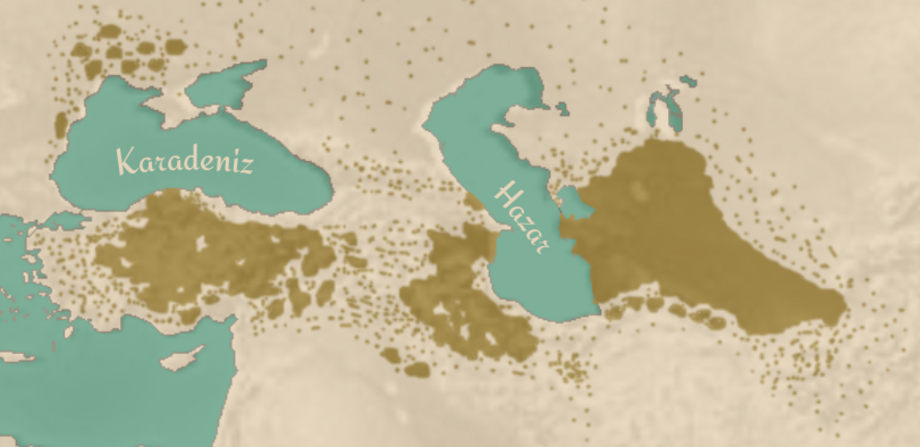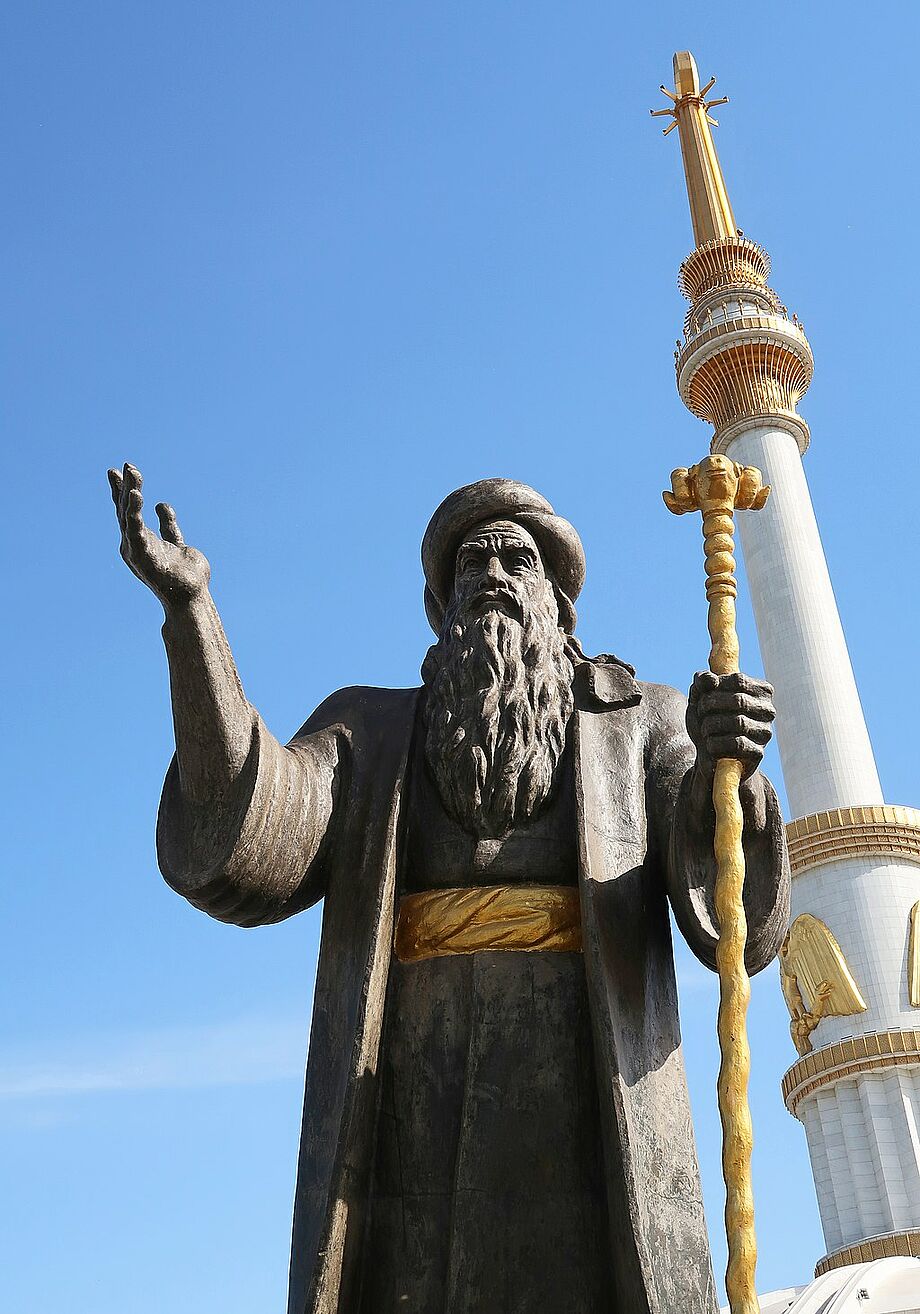Origin
The "Book of Dede Korkut" (Dede Korkut Kitabı, also Kitabi-Dədə Qorqud or Kitaby Dädem Gorkut) is essentially an oral tradition of the heroic tales of the Oghuz, a confederation of 24 Turkic-speaking nomadic tribes who migrated from the steppe regions of Mongolia and Central Iran to the territory of today's Turkmenistan and Azerbaijan as well as to eastern Turkey (Anatolia) and northern Iran in the 11th century.
The identity of Dede Korkut ("Old Father Korkut"; Gorkut Ata in Turkmen), who appears in the Oghuz stories as a prophet, advisor, bard and storyteller (and thus also as an author), is not clear. He is said to have invented the long-necked lute (kopuz). A Persian world chronicle from the early 14th century mentions a Korkut Ata from the Oghuz tribe Bajat, who is said to have lived in the 9th/10th century and bears features of the figure of Dede Korkut.

